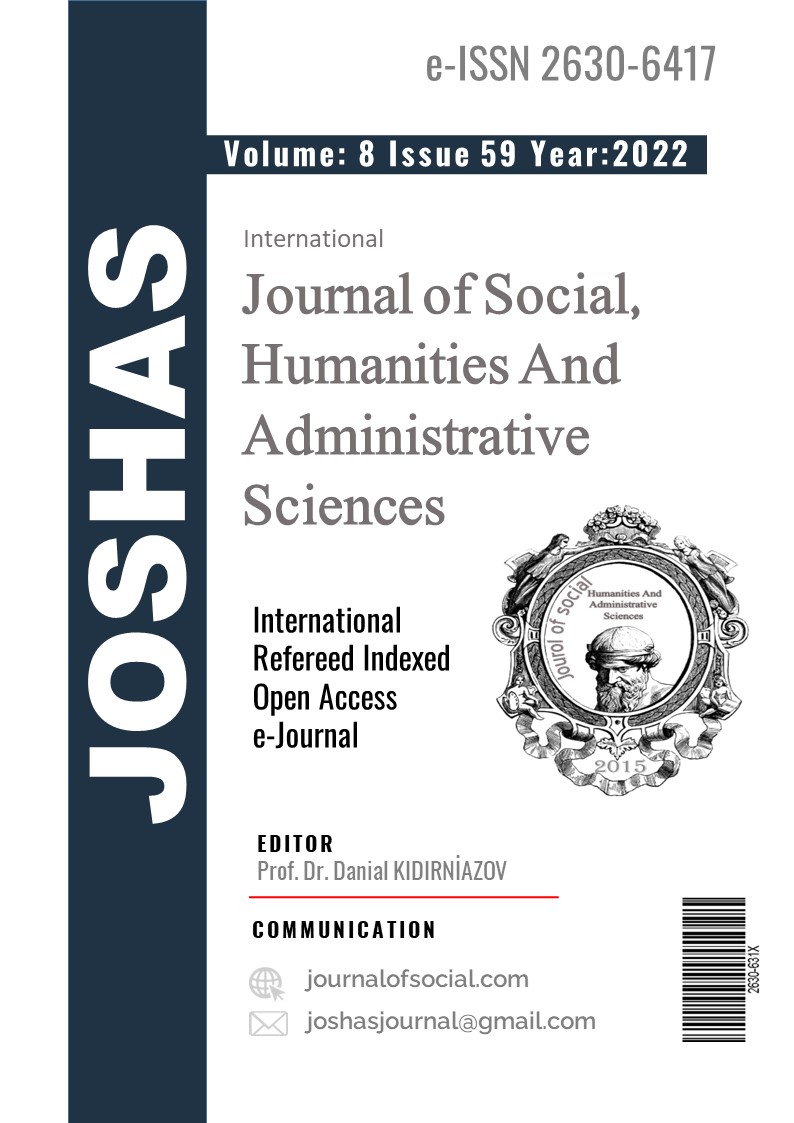Author :
Abstract
Türkiye tarihi boyunca çeşitli nedenlerle ülkesini terk eden göçmenlere ev sahipliği yapmıştır. Suriye’de iç karışıklık nedeniyle Türkiye’ye göç eden mülteciler belki de bu göçlerin en fazla ses getirenleri arasında yerini almıştır. Suriye, Afganistan, Irak, İran gibi ülkelerden birçok çocuk ve genç Türkiye’ye göç etmiş ve eğitim hayatlarını Türkiye’deki okullarda devam ettirmek zorunda kalmışlardır. Bu çalışmanın amacı, mülteci öğrencilerin öğrenme sürecinde karşılaştıkları sorunları ortaya koymaktır. Bu amaç doğrultusunda 2021-2022 eğitim öğretim döneminde Amasya ilinde yer alan ortaöğretim kurumlarında çalışan ve sınıflarında mülteci öğrenci bulunan 8 öğretmen ile görüşülmüştür. Çalışma nitel bir araştırma olup, veriler yarı yapılandırılmış görüşme formu hazırlanarak elde edilmiştir. Veriler betimleyici bakış açısına göre analiz edilmiştir. Elde edilen bulgulara göre, öğretmenler mülteci öğrencileri, aileleri ülkesinden kaçan çocuklar ve savaş yüzünden başka bir ülkeye sığınan aile çocukları olarak tanımlamışlardır. Eğitimde mülteci öğrenci sorunlarını, öğrencinin kendisinden kaynaklı, öğrencinin aile ve kendi kültüründen kaynaklı ve eğitim öğretim sisteminin eksikliklerinden kaynaklı olarak sıralamışlardır. Mülteci öğrencilerin eğitim sorunlarının giderilmesine yönelik olarak, dil ve kültür etkileşim kurslarının yaygın olarak yapılması, aileleriyle daha fazla iletişim sağlanması ve son olarak da kendi seviyelerine uygun eğitim içeriklerinin hazırlanması, eğitim ve mülteci eğitim politikalarının geliştirilmesi şeklinde önerilerde bulunmuşlardır. Sonuç olarak, Türkiye’de her eğitim kademesinde öğrenim görmekte olan mülteci öğrenci sayısı artmaktadır. Bu bağlamda araştırmacılar, Türk eğitim sisteminde yaşanan mülteci öğrenci sorunları için yeni çalışmalar ve planlamalar yapılması gerektiği sonucuna ulaşmışlardır.
Keywords
Abstract
Throughout its history, Turkey has hosted immigrants who left their country for various reasons. Refugees who immigrated to Turkey due to internal turmoil in Syria were perhaps among the most vocal of these migrations. Many children and young people from countries such as Syria, Afghanistan, Iraq and Iran immigrated to Turkey and had to continue their education in schools in Turkey. The aim of this study is to reveal the problems that refugee students face in the learning process. For this purpose, 8 teachers working in secondary education institutions in Amasya province and having refugee students in their classes were interviewed in the 2021-2022 academic year. The study is a qualitative research and the data were obtained by preparing a semi-structured interview form. The data were analyzed from a descriptive point of view. According to the findings, teachers defined refugee students as children whose families fled their country and family children who took refuge in another country because of the war. They listed refugee student problems in education as stemming from the student himself, the student's family and their own culture, and the deficiencies of the education system. In order to solve the educational problems of refugee students, they made suggestions such as making language and culture interaction courses more widely, providing more communication with their families, and finally, preparing educational content suitable for their level and developing education and refugee education policies. As a result, the number of refugee students studying at all levels of education in Turkey is increasing. In this context, the researchers concluded that new studies and plans should be made for the refugee student problems in the Turkish education system.





